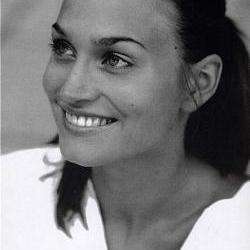To celebrate ten years as an opera house, Theater an der Wien decided to take on Brecht/Weill’s “play with music” Die Dreigroschenoper, an interesting decision which poses a unique set of challenges to those involved. The largest challenge involved casting – although a self-described theater piece, a house like TAW can hardly neglect the importance of having top-notch singers. As one would expect the cast of singers is a veritable who’s who in the world of classical voice. As a nod to the theatre world, Tobias Moretti, the human protagonist in the long-running Viennese TV series Kommissar Rex, was cast in the role of Mack the Knife.
Requiring trained opera singers to focus primarily on acting and asking actors to sing in a renowned opera house puts everyone out of their comfort zone, which is not necessarily a bad thing. However, works by Brecht and Weill fall very much into their own unique genre – something neither musical nor opera nor traditional theatre – and the weight of presenting Weill in a world where everyone has heard recordings of Lotte Lenya and seen Mother Courage and her Children is daunting. Moreover, everyone and his mother has an opinion about how they should be- both theatrically, and in terms of sound. And as such, the reception of Theater an der Wien’s experiment will likely not be overwhelmingly positive, though I wholly applaud the effort.
The production by Keith Warner and John Lloyd Davis follows the principle that spoken texts inhabit a very “real” place, and that the songs are “show”. Boris Kudlicka's impressive stage design features a rotating metallic structure, which reveals locations including Macheath and Polly’s apartment (with running water), the Peachum family office and home and, in homage to Brecht’s Verfremdungseffekt, a number of stages, cages and sets within the set. This dichotomy between real and show is particularly effective in the opening ensemble number, with Macheath drawing a curtain across the stage, and in the catfight between Polly (Nina Bernsteiner) and Lucy Brown (Gan-ya Ben-gur Akselrod) where both ladies don Victorian gowns and wigs, then tear them off each other.
What worked less consistently throughout the show were the realizations of the characters. Although certain cast members created personas for their parts which worked very well – Florian Boesch was a marvellously devious and very convincing Peachum, and Angelika Kirchschlager was likewise memorable as his booze-drenched, pink-haired wife and partner in crime- others characterizations seemed less focused. Nina Bernsteiner (Polly Peachum) has a spectacular range of vocal styles at her disposal, yet sang everything lyrically and classically. As she was dressed equally innocently (Kaspar Glarner) in 1940s robes accessorized with teddy bears, my guess is this a directorial decision. Unfortunately, despite some wonderfully comedic moments and an energetic performance, the heartlessness inherent in her character, who not only allows her husband to hang, but basically sends him off to the gallows while stealing his company out from under him, was severely undermined by both her costume and vocal style.
Likewise our antihero, the dastardly Macheath, seemed a rather toothless shark. Moretti’s portrayal of a man whose deeds have all London hiding under their bedsheets was pale. Instead of a character of pure evil being caught in his own net, one ended up feeling sorry for a man who seems, if not innocent, than at least fairly harmless. His sung numbers lacked grit, although he does have a voice. He sounded best hanging upside down in his jail cell in this (third) performance, so there is hope that he will dig in, let go and find new depth and power over the course of this role.
I was confused by Markus Butter’s depiction of Police Chief Brown, which seemed like a parody of a character, an odd departure from what the rest of the cast was doing. Having Anne-Sofie von Otter play Spelunkenjenny was an interesting choice. She took some considerable risks singing her Soloman Song which was appreciated, but the Tango Ballad between her and Macheath in Act II lacked any modicum of chemistry, with her towering over Macheath and him apparently afraid to touch her. The Arnold Schoenberg Chor under the direction of Erwin Ortner sounded fabulous, and thankfully Weill-esque, sending a shot of much-needed adrenalin into the arm of the final act.
Summed up, I would have preferred a reading of Dreigroschenoper that was considerably more dark, sexy, gritty, dirty and raw, so Warner’s glossy, shiny portrayal of London and its inhabitants seemed to lack teeth. But when it comes to Brecht and Weil, everyone has an opinion.




